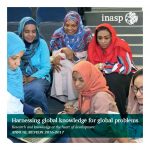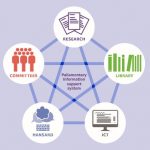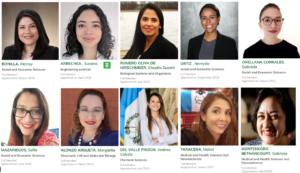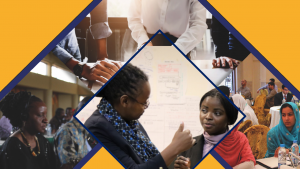Environmental Protection Agency in Ghana gets support to improve evidence use
The Environmental Protection Agency in Ghana will work to improve the use of knowledge in policy with support from INASP and Politics & Ideas
A proposal from the agency in Ghana has been selected to improve the use of knowledge in policy through the application of the ‘Context Matters’ framework, developed by Politics & Ideas and INASP. This framework can be used as a diagnostic tool to help agencies understand the current state of knowledge production and use to inform policy, identify windows of opportunity for change, prioritize areas for improvement and co-design feasible change plans.
In a call announced in June, INASP and Politics & Ideas invited proposals from committed government agency leaders that are eager to initiate a process of change in their organizations or support a process that has already started. The exercise will produce a comprehensive diagnosis of the organizations, select top areas that have room for improvement, and develop a change plan.
Initially it was intended that only one agency would be selected (the Secretary of Public Administration in Peru). However, given the high quality of the applications received, INASP decided to support one more agency, this time, in Ghana.
According to Clara Richards, Senior Programme Manager for Evidence-Informed Policy Making at INASP, the applications from Ghana in particular were very good, showing the commitment that the country has to improve the use of knowledge in policy.
Ghana’s Environmental Protection Agency (EPA) advises the Minister on the formulation of policies on all aspects of the environment and, in particular, makes recommendations for the protection of the environment. This cross-cutting agency works constantly with other ministries, which increases the opportunity for the Context Matters support to improve how knowledge is used across the public sector in Ghana.
In their response to the Politics & Ideas/INASP call, the Deputy Director of the EPA, Ebenezer Sampong, set out the agency’s case that participation in this project would help answer crucial questions such as:
- Is the information/knowledge produced through our research, field assignments incorporated or utilized in the entire policy formulation cycle?
- Is the information/knowledge produced relevant for decision making?
- What are the levels of responsibility in linking knowledge to policy?
- What technical processes require improvement?
- What are the resource requirements for knowledge production and use?
Notes for editors
About The Environmental Protection Agency
The Environmental Protection Agency is the leading public body for protecting and improving the environment in Ghana. It is responsible for ensuring that air, land and water are looked after by everyone in today’s society so that tomorrow’s generations inherit a cleaner, healthier world. The agency has more than 40 years of history. It has offices across Ghana working on and carrying out Government policy, inspecting and regulating businesses and reacting when there is an emergency such as a pollution incident. A 13-member board of directors, appointed by the President of Ghana, supervises agency operations. However, the management of day-to-day operations is directly under an Executive Director and three divisional heads (Deputy Executive Directors).
About Politics & Ideas
Politics & Ideas: a think net is a Southern-led space and joint initiative of researchers and practitioners to co- produce and share innovative and relevant knowledge linking ideas and politics in developing and emerging economies.
About INASP
INASP is an international development organization working with a global network of partners in Africa, Latin America and Asia. In line with the vision of research and knowledge at the heart of development, INASP works to support individuals and institutions to produce, share and use research and knowledge, which can transform lives. INASP promotes equity by actively addressing the needs of both men and women across all our work and addressing issues of power within the research and knowledge system.

 Previous Post
Previous Post Next Post
Next Post


